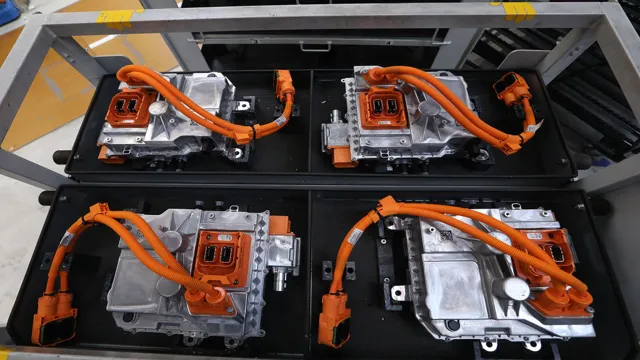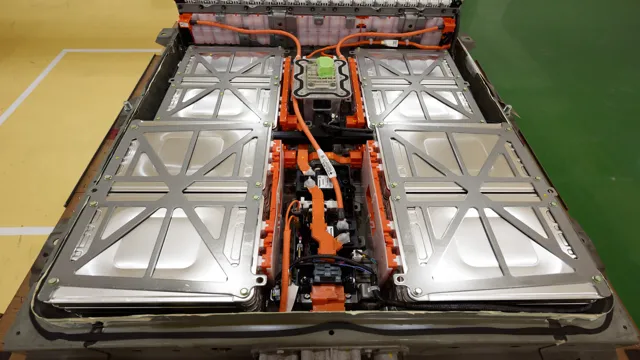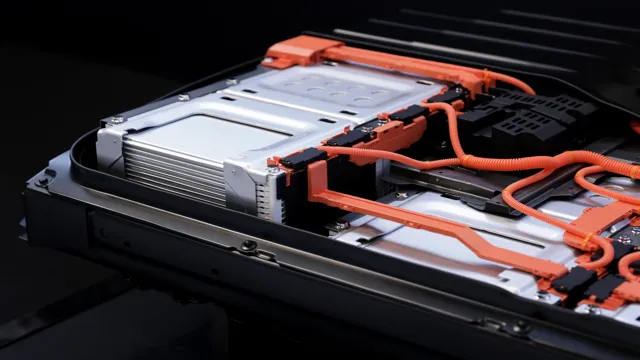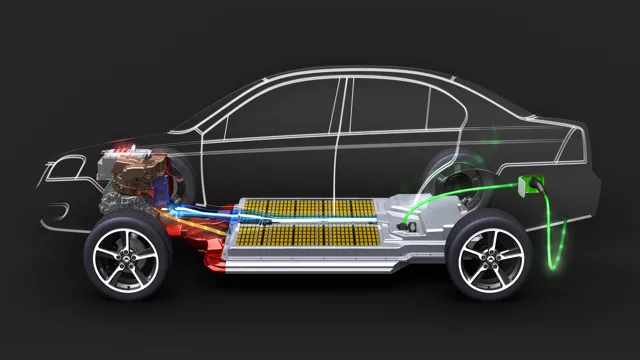Uncovering the Truth: The Toxic Reality of Electric Car Batteries
As electric cars gain popularity as a cleaner alternative to traditional gas-powered vehicles, consumers have raised concerns about the environmental impact of the batteries that power them. The question on everyone’s mind is simple: are electric car batteries toxic? With all the talk about emissions reductions and living a greener lifestyle, it’s important to understand these nuances. After all, if electric car batteries are more harmful to the environment than gas-powered vehicles, the benefits of driving an electric car might be short-lived.
In this blog post, we’ll dive into the details of electric car batteries and address common concerns about their toxicity.
Introduction
Are electric car batteries toxic? It’s a common question that comes up in discussions about the environmental impact of electric cars. While electric cars are generally considered cleaner than gasoline-powered cars, the production and disposal of their batteries can have some negative consequences for the environment. Electric car batteries do contain some toxic materials, such as lithium, cobalt, and nickel, which can be harmful if they end up in landfills or bodies of water.
However, the good news is that many electric car battery manufacturers are committed to making their batteries more environmentally friendly. For example, Tesla has made significant strides in reducing the amount of cobalt used in their batteries, and some companies are experimenting with recycling programs to reduce waste. So, while there’s still work to be done, the future looks bright for electric car batteries and their impact on the environment.
The Rise of Electric Cars
Electric cars have been gaining popularity in recent years due to their environmentally friendly nature and low operating costs. From Tesla’s sleek models to affordable options like the Nissan Leaf and Chevy Bolt, there is a growing demand for these vehicles on the market. With advancements in technology, electric cars are becoming more reliable and have longer driving ranges than ever before.
Plus, the continuing development of charging infrastructure makes electric cars a practical option for daily use. As concerns about climate change and the expense of gasoline increase, it’s no wonder that more and more people are making the switch to electric vehicles.
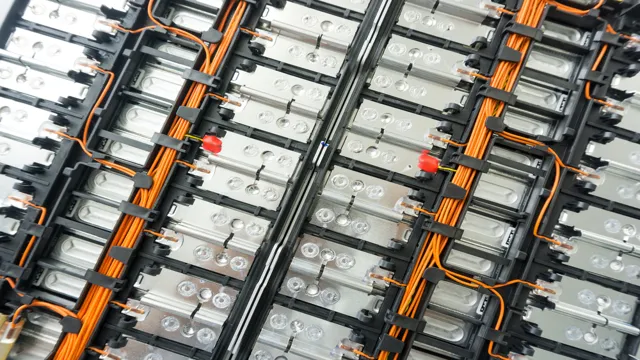
Concerns Over Battery Pollution
In recent years, the popularity of electric vehicles and various portable electronic devices has resulted in a significant increase in the demand for lithium-ion batteries. However, as the demand for these batteries grows, there are concerns regarding battery pollution. Although these batteries are seen as a more environmentally friendly alternative to traditional batteries, they are not entirely without environmental risks.
One of the main concerns is that the mining and production of materials used in lithium-ion batteries, such as cobalt and lithium, can lead to environmental damage and pollution. Additionally, if not disposed of or recycled properly, these batteries can leak toxic chemicals into the environment and contaminate soil and water sources. As such, while lithium-ion batteries may offer numerous benefits, it is important to address these concerns to ensure that their use does not cause lasting harm to the environment.
The Truth About Electric Car Batteries
Electric car batteries have gained popularity in recent years due to their eco-friendliness and efficiency. However, concerns have been raised over their toxicity and its impact on the environment. While it is true that electric car batteries contain certain toxic materials such as lead, cadmium, and lithium, the risk of environmental damage is relatively low due to the strict regulations and recycling programs in place.
In fact, electric car batteries are designed to last for a long time, and their components are recycled or repurposed to reduce waste. Additionally, the number of electric cars on the road is still relatively small, further reducing the overall impact on the environment. Overall, electric car batteries may contain toxic materials, but their potential environmental impact is minimized through strict regulations and recycling efforts.
Composition of Electric Car Batteries
Electric car batteries are complex and diverse, consisting of a variety of materials and components. The primary component in most electric car batteries is a lithium-ion cell, which is used to store the electric charge that powers the car’s motor. These cells are composed of three primary components, including a negative electrode, a positive electrode, and an electrolyte that facilitates the transfer of ions between the two electrodes.
Additionally, electric car batteries typically include a range of other components, such as a battery management system, cooling and heating systems, and physical packaging to contain and protect the cells. The composition and design of electric car batteries can vary widely between manufacturers and models, resulting in different levels of performance, efficiency, and reliability. Despite the complexity of these batteries, they are increasingly viewed as a critical element in the transition to a more sustainable and low-carbon transportation system, with exciting developments in battery technology taking place all the time.
Toxicity of Materials Used in Batteries
The truth about electric car batteries is that while they are making renewable energy a viable option, they also come with certain environmental costs. One of these costs is the toxicity of the materials used in the batteries. Lithium-ion, the most common type of battery used in electric cars, requires the use of metals that can be harmful to both the environment and people.
For example, lithium mining can cause water shortages and toxic chemical spills, and cobalt mining has been linked to child labor and unethical working conditions. However, companies are actively working to find alternative materials and reduce the environmental impact of battery production. It is important for consumers to be aware of these issues and to support companies that prioritize sustainability in their manufacturing processes.
Environmental Impacts of Battery Production and Disposal
When it comes to the environmental impacts of batteries used in electric cars, there’s a lot of misinformation out there. It’s important to remember that while the production and disposal of these batteries can have negative effects on the environment, they’re still a better choice than traditional gasoline-powered vehicles. One of the biggest concerns is the mining of lithium, a key material used in electric car batteries.
However, advancements in technology are allowing for more sustainable mining practices that can reduce the harmful effects on the environment. Additionally, the disposal of batteries is a concern, as they can release toxic chemicals into the soil if not disposed of properly. However, efforts are being made to recycle these batteries and extract valuable materials for reuse.
Overall, while there are environmental impacts associated with electric car batteries, it’s crucial to consider the long-term benefits of reducing our reliance on fossil fuels and moving towards more sustainable transportation options.
Are Electric Car Batteries Harmful to Humans?
When it comes to our health and the environment, it’s natural to question the safety of electric car batteries. The good news is that, unlike traditional lead-acid batteries, lithium-ion batteries used in electric vehicles are not toxic to humans. However, the manufacturing process does come with some environmental concerns, mainly to do with the mining of rare earth metals, used in the production of the batteries.
These metals can be hazardous to the environment and local communities if not managed properly. Nevertheless, the overall impact of electric car batteries is much lower than that of gasoline-powered vehicles, as they emit no pollutants during operation, and their batteries can be reused or recycled multiple times. Thus, while electric car batteries may not be entirely free of environmental concerns, they pose no direct harm to our health.
Health Risks Posed by Battery Chemicals
Electric Car Batteries Electric car batteries contain several chemicals that can pose health risks to humans. For example, the lithium-ion batteries that most electric cars use contain cobalt, nickel, and other heavy metals that can be toxic if ingested or inhaled in large amounts. Additionally, the manufacturing process for these batteries can release harmful chemicals into the environment and surrounding communities.
However, it is important to note that the risks associated with electric car batteries are relatively low compared to the risks posed by traditional gas-powered vehicles. In fact, studies have shown that electric cars are much safer for humans and the environment overall due to their lower emissions and improved efficiency. As such, while it is important to be aware of the potential risks posed by electric car batteries, there is no need for undue concern or alarm.
With proper handling and disposal, these batteries can be used safely and responsibly for years to come.
Precautions and Safety Measures
Electric car batteries have been a topic of concern for many people, and rightly so. But, are they harmful to humans? The answer is not as straightforward as a yes or no. While the batteries themselves are not inherently dangerous, mishandling or accidents could pose a risk.
The lithium-ion batteries used in electric cars can catch fire when exposed to extreme heat, punctures, or crashes. However, they are designed with safety mechanisms to minimize these risks. Additionally, the production and recycling process of these batteries may involve hazardous materials.
Therefore, it is essential to take precautions and safety measures when dealing with electric car batteries. It is crucial to follow proper disposal procedures and avoid mishandling to prevent harm to oneself and the environment. In conclusion, while electric car batteries themselves are not dangerous, they do require proper care and handling to prevent potential hazards.
Conclusion
So, are electric car batteries toxic? Well, it’s not a simple answer. While the materials used in making the batteries can be toxic, the risk is mitigated by proper disposal and recycling methods. Plus, when you compare the environmental impact of an electric car to a gas-guzzling one, the benefits of making the switch are clear.
So, let’s charge on towards a sustainable future, but let’s be mindful of the toxicity lurking in those batteries!”
FAQs
Are electric car batteries toxic?
Yes, electric car batteries contain toxic chemicals such as lithium, cobalt, and nickel, which can be harmful to the environment and human health.
What happens to electric car batteries when they are no longer usable?
Electric car batteries can be recycled to recover valuable raw materials like cobalt and nickel. However, improper disposal can lead to environmental pollution and health hazards.
How long do electric car batteries last?
The lifespan of electric car batteries depends on various factors, such as usage, temperature, and maintenance. On average, most electric car batteries last between 8 to 10 years before they need replacement.
Are electric car batteries more expensive than traditional car batteries?
Yes, electric car batteries are typically more expensive than traditional car batteries due to the use of advanced technologies and materials like lithium-ion. However, the cost is expected to decrease in the future with advances in technology and mass production.


